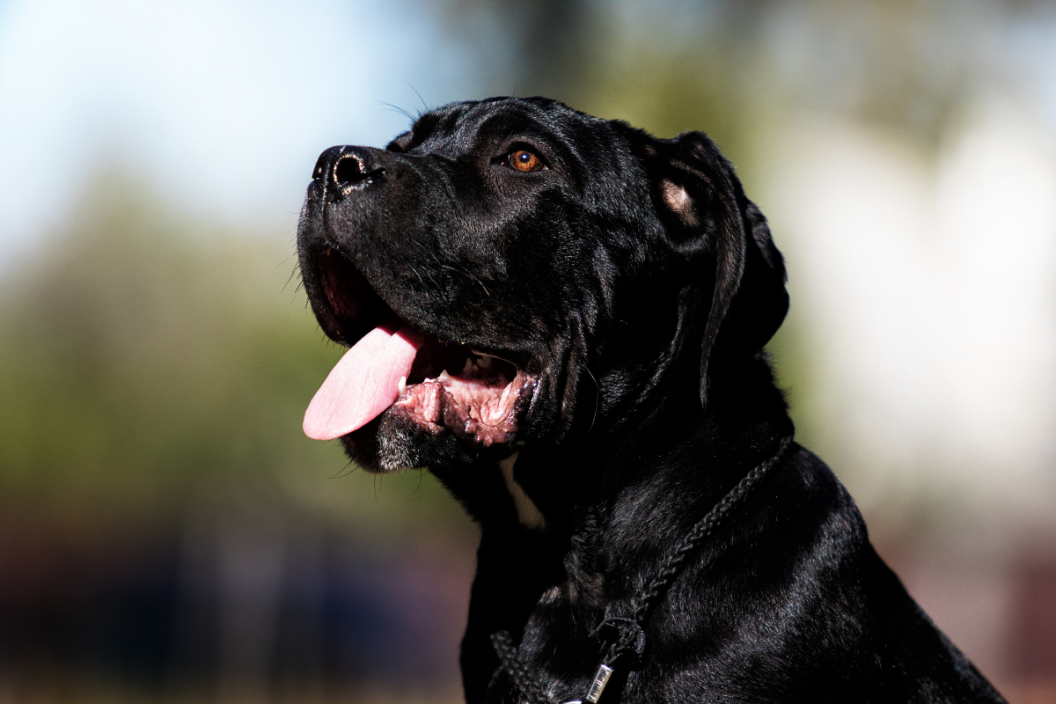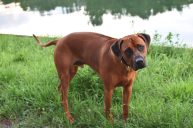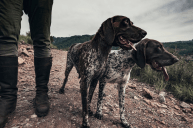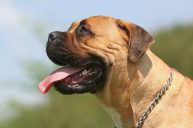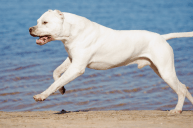Meet the Cane Corso, one of the most underrepresented dogs!
The Cane Corso dog breed is for someone serious about having a dog as a friend and someone who can offer this breed the strong and loving direction it needs to become a terrific dog. This mastiff breed is first and foremost a guard dog. Don't expect this breed to befriend everyone he meets: outside of his family, he has little interest in people or other animals, especially if you adopt a Cane Corso rescue. Enroll this Italian Mastiff in a canine sport like agility, dock diving, nose work, obedience, daily exercise, or tracking to keep him from becoming a couch potato and to control his energy level and prey drive.
Breed History
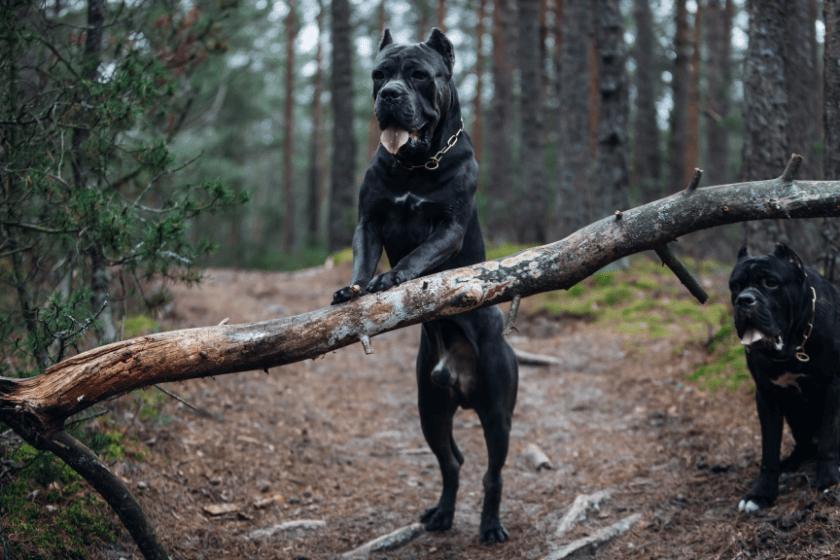
The Cane Corso is an Italian working breed of dog that originated in the Roman Empire. Romans brought Molossus dogs from the Greek islands to breed with Italian canines. This purebred, short coat canine survived multiple world wars and was considered one of the best dogs for working folks. Unfortunately, in the mid-to-late 1900s, the breed was facing extinction as life changed in southern Italy. It wasn't until 1988 that it arrived in the U.S. and was officially recognized and given a breed standard by the AKC.
The Corso is a Mastiff-type working dog breed that originated in Italy and is said to be descended from Roman war dogs. He is smaller in stature than his cousin, the Italian breed Neapolitan Mastiff, which is a giant breed. The Cane Corso is a large breed developed to hunt game, act as a guard dog, and work as an all-around farm laborer. The term corso may derive from the Latin word cohors, which means bodyguard, or from the Latin word corsus, which means "sturdy or strong." Cane derives from canis, which is Latin for dog.
The Cane Corso was a dog breed on the verge of extinction in the 1970s and 1980s. In 1988, a guy called Michael Sottile brought the first litter of Corsos to the US, followed by a second litter in 1989. The breed group requested American Kennel Club recognition, which was received in 2010.
Personality
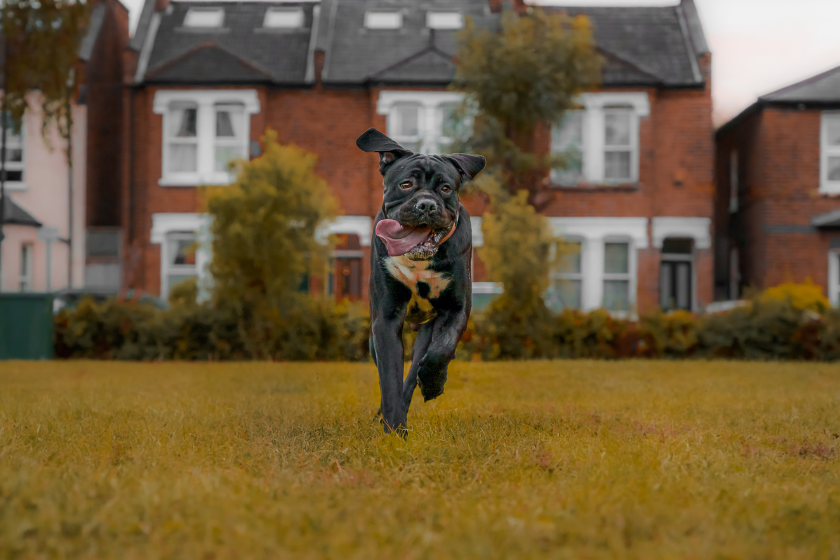
The Corso may be a great family dog who is never overly aggressive, but in the wrong hands (like many other large dogs bred to be watchdogs), he can become violent and pose a threat to the public.
Corsos are large dogs that are gentle and loving with their family members, particularly youngsters. The dog is extremely clever and has a domineering personality. Without solid leadership and boundaries, it's easy to see how he may grow to control the home, and obedience training is highly recommended. This breed is not recommended for first-time dog owners.
The Cane Corso is a smart working breed that thrives on exercise and having a job. The Corso puppy requires early socialization, ideally before the age of four months. Socialization helps to guarantee that your dog develops into a well-rounded canine who is not scared of people, young children, other animals, or being left alone when required.
Appearance
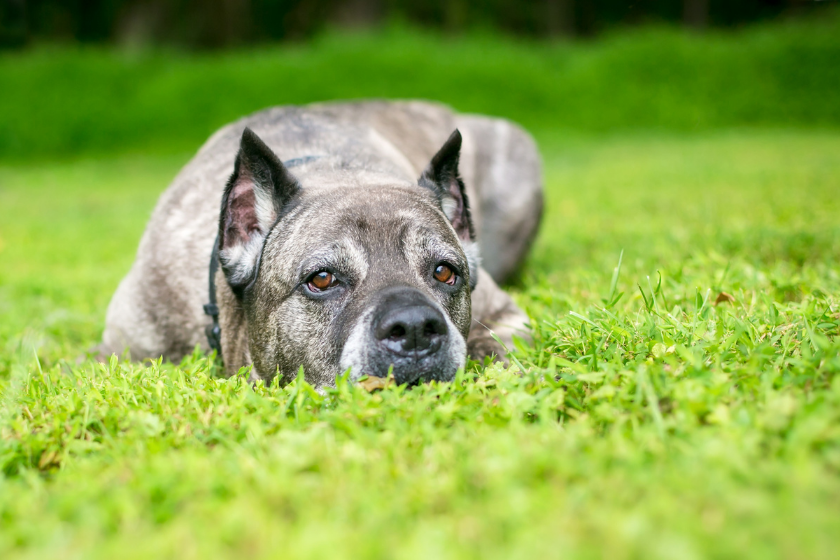
The Cane Corso is a popular choice for keeping an eye on its owners and their land. You'll recognize him by his big chest, huge cranium, and wrinkled brow. He's frequently seen with cropped ears, which are entirely aesthetic and have no demonstrated health benefits for the animal. His floppy ears give him an especially charming appearance.
A full-grown female Cane Corso weighs between 88 and 99 pounds, while a male Cane Corso can weigh up to 110 pounds. The Corso is a big, muscular breed of dog. Males stand 25 to 27.5 inches tall at the withers, while females are 23.5 to 26 inches tall. Weight is proportional to height and usually varies between 90 and 120 pounds.
The coat of the Cane Corso is short and rigid, with a little undercoat. It can be black, gray, fawn, or red, with or without a brindle pattern. Because the dog sheds twice a year extensively, have a decent vacuum cleaner on standby to pick up the dust bunnies. Its almond-shaped eyes can be varied colors of brown, yellow, or blue.
Health Conditions
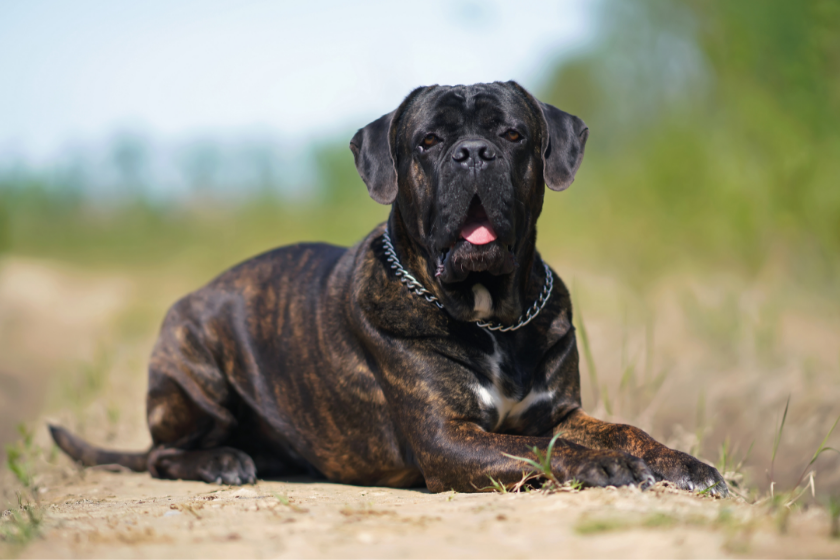
Cane Corso dogs have a lifespan of 10-12 years. They are a big dog breed with a deep chest. Cane Corsos are prone to gastric dilatation-volvulus (GDV) complex, or bloat, due to their deep chest. The condition is a potentially fatal condition in which the stomach fills with air and flips, cutting off blood flow. Hip dysplasia, idiopathic epilepsy, demodex mange, and eyelid anomalies are all cane corso health problems.
Cane Corso owners should see their veterinarian regarding bloat and other health concerns to receive guidance on caring for their dog. To safeguard the health of your Cane Corso puppy, make sure you are using a high-quality Cane Corso breeder. Corsos are typically healthy, although they, like all breeds, are prone to specific health issues.
Do you love the Cane Corso dog breed? Tell us on the Wide Open Pets Facebook page!
